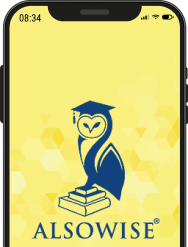Reading is good for you at so many different levels
As recently as twenty years ago, children and youth had to be harried indoors after sundown and scolded in order to stop their games and other outdoor activities, so that they could complete homework or project-related activities.
The advent of the internet, followed by the rise of ubiquitous mobile connectivity and, in India, extremely affordable data packages, seems to have changed all that forever. Children as young as ten (sometimes younger) appear to be umbilically attached to their screen-based devices and, when left unchecked, have begun to spend the majority of their waking hours in some sort of cyber twilight zone.
This trend can be ruinous at various levels:
- The deleterious impact of social media on mental health is well established. Experts are of the view that Depression is the new, though largely undocumented, pandemic and, the world over, “suicide helplines” are busier than ever before. The new “couch potato” lifestyle reduces exposure to sunlight, inhibiting serotonin levels and exacerbating depression and anxiety. A sedentary lifestyle also promotes the onset of Type 2 Diabetes.
- Constant interaction with screen-based devices also has a huge impact on concentration, comprehension and retention. New empirical studies conducted in some of the developed countries show an alarming trend: the average attention span of a youth is now, depending on the circumstances, between 11 and 40 seconds. Obviously this bodes ill for students, struggling to attain the basic academic credentials which will enable them to get jobs.
- Students attending classes with their devices in tow are likely to be much more distracted (in some instances this can also lead to disciplinary issues) and the future for learning outcomes tends to become really bleak.
Perhaps it is time to take a fresh look at what needs to be reinforced in the classroom and at home.
Language skills should, perhaps, be the first line of defence. The ability to communicate, orally and in the written word, is mission critical to success. Reading is a precursor to attaining any level of competence in these endeavours. Reading helps the young student to learn and improve sentence construction and vocabulary, even as it expands her knowledge base. Eclectic reading habits can also improve ideation, apart from bestowing situational awareness upon the reader.
Reading has an immediate impact on the ability to concentrate and also enables a person’s ability to retain information better, while simultaneously equipping them to be more analytical. Learning the nuances of tone and mood, developing the ability to discern what a person says vis-a-vis what they wish to imply, and, at the other end of the spectrum, developing a sense of humour, subtle or earthy, are life-skills that should not be underestimated or ignored.
It is heartening to learn that, slowly but surely, parents and schools are regulating, proscribing and, on occasion, prohibiting the use of screen-based devices. In this regard, Australia’s move to ban minors under the age of 16 from accessing social media is a welcome step. An enervating habit may be replaced by an invaluable life-skill.
Ultimately, if learning outcomes are to be improved, the inculcation of the reading habit, at the expense of all other forms of digital consumption, needs to be pursued with extreme prejudice.




